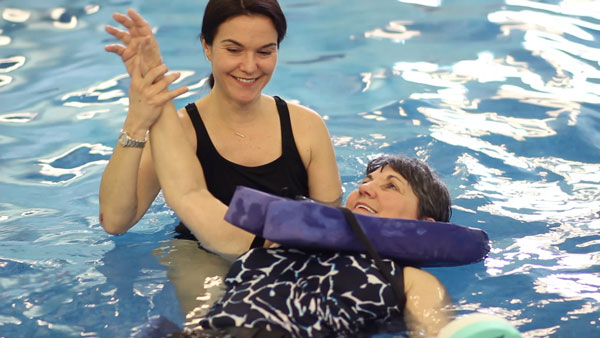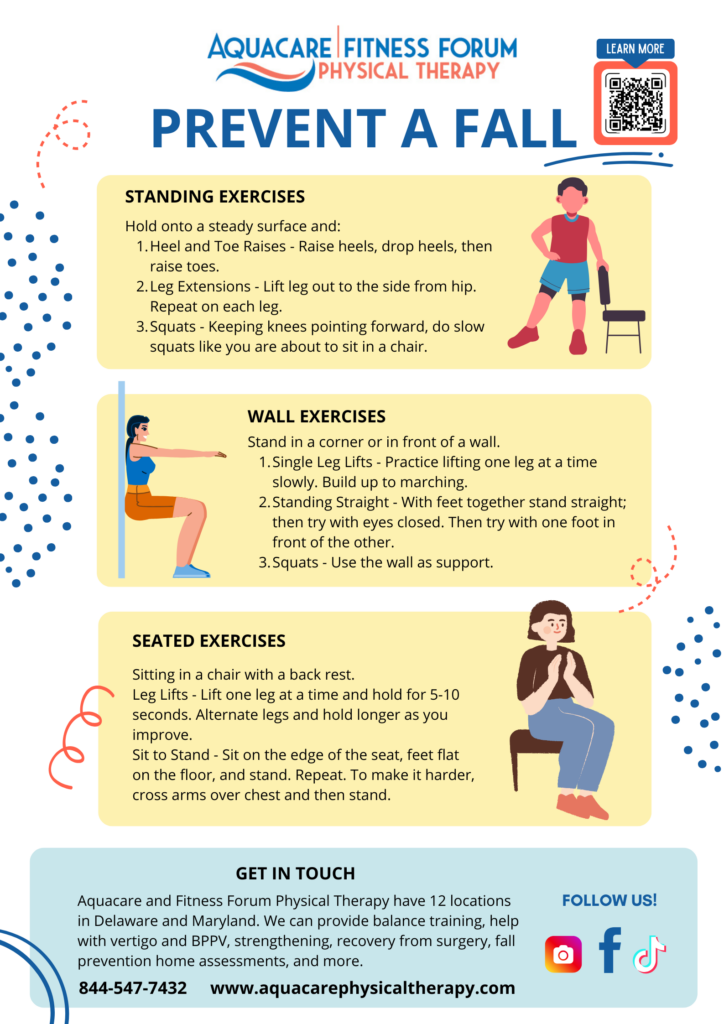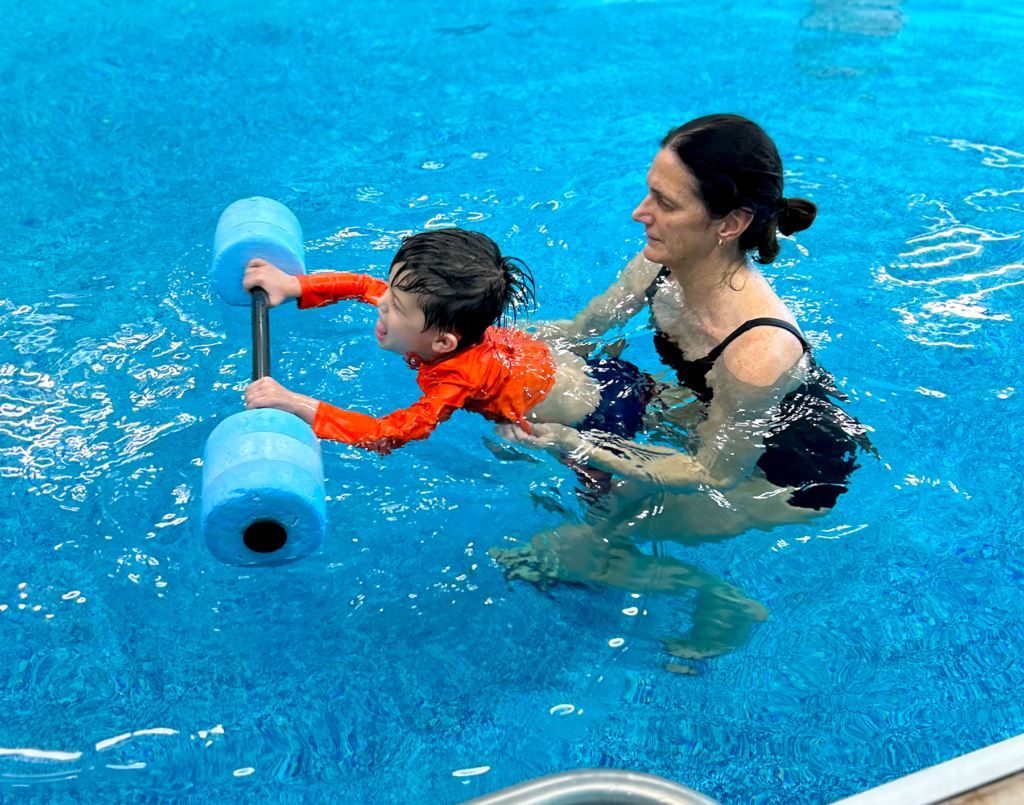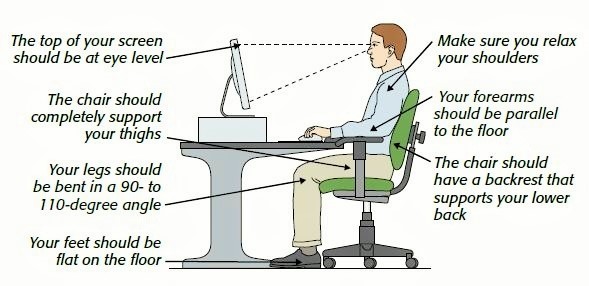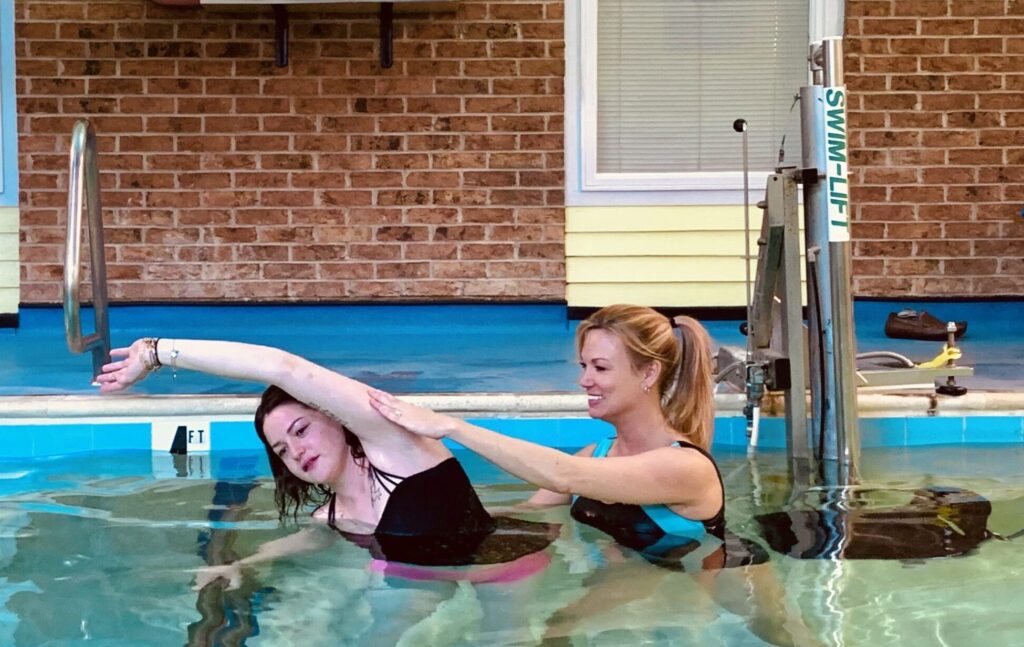
The Benefits of Aquatic Therapy

What is Aquatic Therapy?
Aquatic therapy has been used for centuries as a vital part of medical treatment. Its benefits have been recognized since the days of the Greeks and Romans and continue to be praised today.
Aquatic therapy provides benefits for a multitude of populations such as injured athletes, spine, arthritis, and fibromyalgia sufferers as well as those recovering from knee/hip surgery.
The use of water improves mobility and flexibility, promoting muscular relaxation and relieving discomfort due to its soothing and unweighing principles! Additionally, the natural buoyancy of water counteracts the effects of gravity, reducing compressive impact and making exercises much easier to perform compared to those on land. By harnessing these unique benefits, Aquatic Therapy offers a valuable approach to rehabilitation and healing.
Fact: A person immersed to the neck in water experiences an apparent loss of 90% of their body weight.
“You have a smaller risk of re-injury from water therapy,” says Cara Konlian, physical therapist and CEO of Aquacare Physical Therapy. “In the aquatic environment, patients can eliminate joint stresses and experience pain-free movement due to the buoyancy of the water.” The aquatic environment is an excellent medium for those individuals suffering from arthritis, fibromyalgia, or low back pain.
What Are The Benefits of Aquatic Therapy?
Aquatic therapy can provide several benefits for both pre-and post-surgery patients. These include:
- Reduced pain: The buoyancy of water reduces the amount of weight-bearing on the joints, relieving pain associated with surgical incisions and movement. The water’s warmth can also help relax muscles and soothe post-operative pain.
- Improved mobility and range of motion: Water offers a low-impact environment that supports joint movement and makes it easier to perform exercises without aggravating surgical sites. This allows patients to regain strength and flexibility gradually.
- Enhanced healing and recovery: Aquatic therapy stimulates circulation and boosts blood flow to the surgical site, improving the delivery of oxygen and nutrients to aid in healing. It can also reduce inflammation and swelling, leading to faster recovery.
- Increased muscle strength and endurance: Water provides resistance to movements, making it an excellent medium for muscle conditioning. Post-surgery patients can safely regain muscle strength and endurance by performing exercises in the water.
- Improved balance and coordination: The natural resistance of water requires patients to engage core muscles to maintain stability and balance. Aquatic therapy can help refine balance control and enhance coordination, which is beneficial for patients recovering from surgery.
- Reduced stress on joints and bones: The buoyancy of water significantly reduces the impact on joints and bones, making it an ideal therapy for patients with weight-bearing restrictions after surgery. It allows them to exercise with less stress and strain on the body.
- Increased confidence and psychological well-being: Immersion in water can have a calming effect on the mind and body. It can help reduce anxiety, stress, and depression often experienced by post-surgery patients, thereby boosting overall psychological well-being and confidence.
It is important to note that the benefits of aquatic therapy can vary depending on the specific surgical procedure and the individual patient’s needs. Talk to your healthcare provider or your surgeon about the benefits of aquatic physical therapy both before and after surgery.
How Can I Schedule Aquatic Therapy?
To learn more or schedule your appointment online, go towww.aquacarephysicaltherapy.com. Aquacare has 11 locations in Delaware and Maryland, so chances are there is an Aquacare location near you! Free 30-minute Consultations are available. Schedule online: https://aquacarephysicaltherapy.com/free-consultation.





